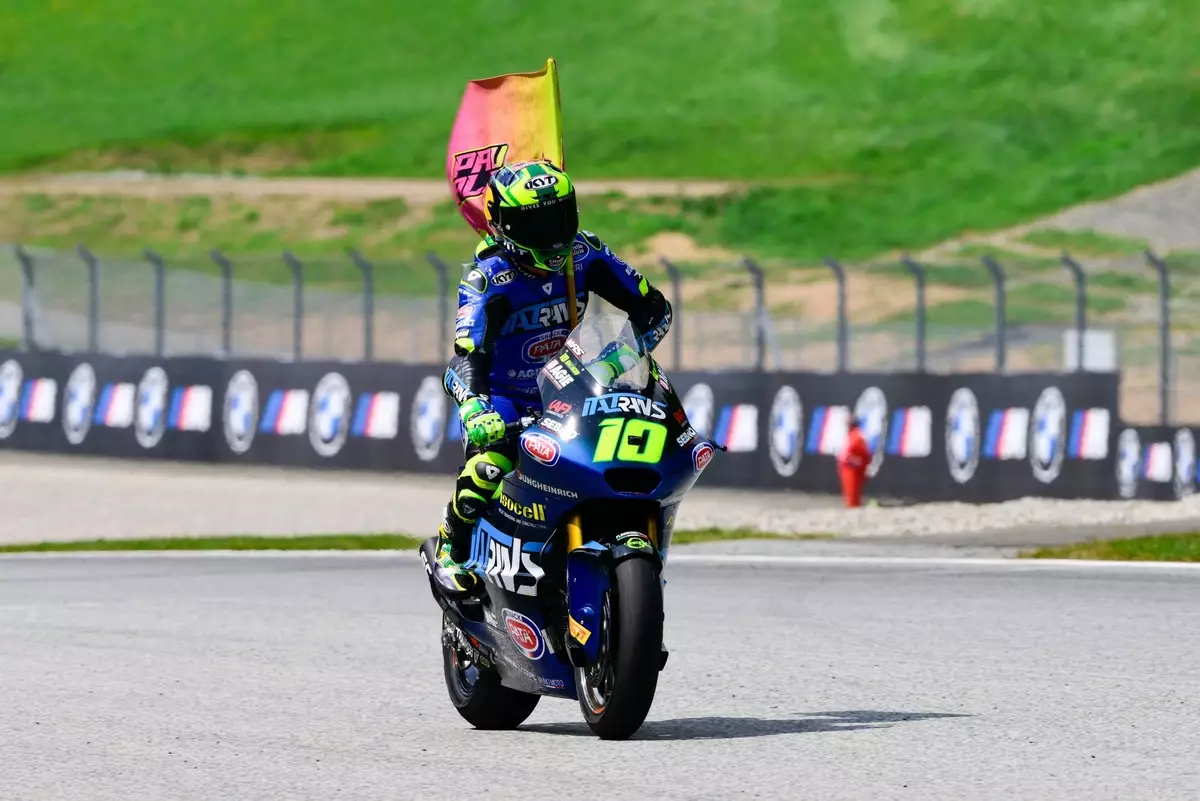The motocross world is witnessing a pivotal moment with Diogo Moreira nearing a groundbreaking transition to MotoGP, the pinnacle of motorcycle racing. At just 21 years old, this Brazilian prodigy has demonstrated remarkable skill and consistency in Moto2, clinching multiple victories and challenging for the world championship. His impending move to Honda’s LCR team signals more than just a career progression—it represents a potential shift in the sport’s demographic and competitive dynamics.
Moreira’s leap isn’t merely about personal advancement; it embodies a broader narrative of diversity and global reach in MotoGP. Historically, the sport has been dominated by European and Japanese riders, with South Americans hinting at presence but rarely making impactful strides in recent years. His integration could serve as a catalyst, inspiring new generations from Latin America and beyond, invigorating the sport with fresh cultural perspectives.
However, this transfer isn’t without complexity. Honda’s decision to prioritize Moreira hinges on strategic forecasts—aiming to cultivate a young talent capable of competing in the evolving technical climate. As MotoGP gears up for significant regulation changes in 2027, bringing 850cc engines into the fold, Honda’s move seeks to ensure Moreira is prepared to adapt swiftly and confidently. The ambitious three-year contract signals a long-term vision; Honda isn’t just betting on his talent for now but investing in shaping a champion for the future.
National Identity vs. Meritocracy: Debunking Myths Surrounding Moreira’s Signing
Much of the buzz surrounding Moreira’s promotion revolves around his nationality—Brazil, a country with a storied motorcycle racing history but limited recent presence in the premier class. Critics and fans alike are speculating whether his cultural background influenced Honda’s decision, implying that the brand might favor diversity as a marketing tool rather than pure racing merit.
Moreira, however, dismisses such notions, asserting that his selection is rooted in performance, not nationality. His recent dominance in Moto2, including a commanding victory at the Austrian Grand Prix, cements his credentials. This sentiment highlights a crucial truth: racing success is rooted in skill, perseverance, and tactical acuity—not flags or borders.
Yet, the timing of his transition carries symbolic weight. It marks a rare return for a South American rider to MotoGP since Alex Barros last competed in 2007. The sport’s global appeal hinges partly on regional representation, and Moreira’s arrival could amplify MotoGP’s presence in South America. Still, it’s essential to recognize that sport’s evolution hinges less on symbolism and more on genuine talent and performance, which Moreira undeniably possesses.
Commercial Strategies and Political Ramifications in MotoGP
Honda’s strategic move extends into broader commercial and geopolitical terrain. The team’s deal with Moreira includes a long-term commitment, targeting 2026 as a transitional year before fully embracing the newer 850cc regulations in 2027. In marrying technical foresight with marketing savvy, Honda aims to leverage Moreira’s talent in rebuilding its racing dominance and expanding its global footprint, particularly in Brazil—a market ripe for growth with the 2026 return of MotoGP.
The decision also impacts other riders and teams. Jack Miller’s prospects at Yamaha appear increasingly secure, potentially extending his stay through 2026. Conversely, Miguel Oliveira faces uncertainties, especially if performance clauses come into play after injuries sidelined him earlier this season. These shifts underscore that MotoGP remains a finely balanced ecosystem, where talent, timing, and contractual negotiations intertwine.
Moreira’s entry also symbolizes a strategic pivot for Honda—viewing young talent as both sporting assets and ambassadors. The move aims at developing a rider who can be competitive in a radically altered technical landscape, securing Honda’s future in a rapidly evolving sport. The broader implication: the sport is becoming increasingly global, strategic, and reflective of shifting power dynamics in motorcycle racing.
As MotoGP looks ahead, Moreira’s promotion stands out not only as a personal milestone but as a potential turning point—where skill, strategy, and representation converge into a new chapter that could redefine the sport’s identity and future trajectory.


Leave a Reply